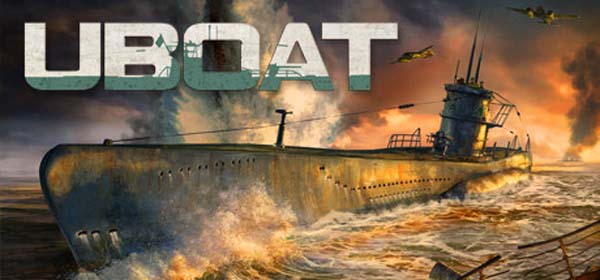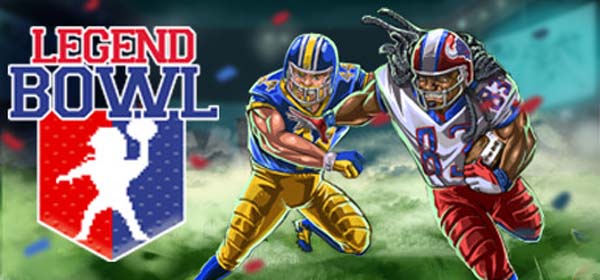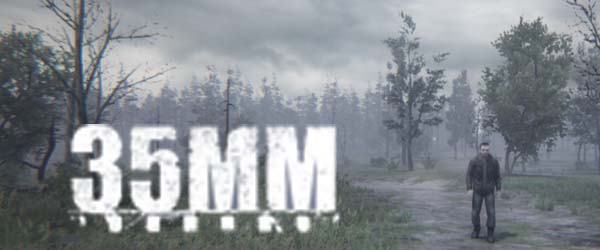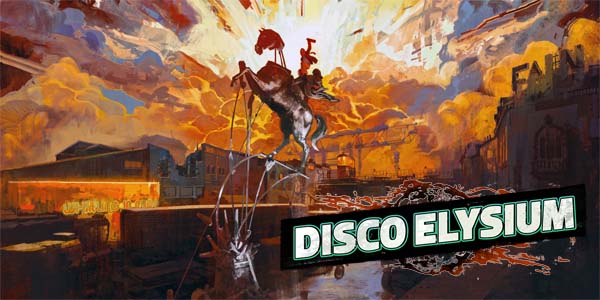
I haven't been able to organize as many board game sessions as I would have liked to over the past 2 years, thanks to the ongoing COVID pandemic. By the time vaccinations were widely available, and we were willing to have more frequent gatherings, many of my board-gaming friends had returned to work. Many work irregular hours, so it's hard to organize games. And despite limiting gatherings, we still suffered our own COVID infections, and several other potential exposures that forced us or our friends into self-quarantine for a week or two, resulting in the cancellation of some board game plans. And of course, having an infant to take care of doesn't make organizing play dates any easier.
Despite not being able to play board games as much, I've still been buying board games, in the hopes that eventually we'll be able to overcome the need for social distancing and will be able to have larger game sessions again. One such game that I bought last summer is U-Boot: the Board Game, which is an app-assisted World War II submarine management game. The rulebook and "tactical guides" are massive, and the game looks lengthy with a steep learning curve. It's not the kind of game that we can play in an impromptu session. It requires preparation, and a lot of time to practice.
As such, I haven't been able to play it yet. I only downloaded the app and played around for a bit to try to learn the rules. Hopefully I'll get to play an actual game soon.
In the meantime, I decided I could maybe get my U-boat fix by buying and playing a totally different U-Boat: the Game, which is an early-access PC game on Steam. It has no relation to the board game, but feels like it could be.
U-Boat is still in early access when I played it. I'm not sure when it's supposed to come out of early access, but it seems like it's fairly complete and should be ready soon. I don't usually go for early access games. As any reader of this blog will know, I take a [possibly overly] critical view of the games I play, and playing an "incomplete" game can be a frustrating experience. I don't want the frustration of incomplete mechanics and frequent bugs to sour my opinion of a game to the point that I'm not willing to play it at all when it is eventually complete. For instance, I never went back to games like No Man's Sky after playing it on release. It wasn't early access, but it might as well have been considering how shallow and incomplete it felt. No matter how much my friends insist that it's better now, I just don't have the motivation to play it again.
I bought the U-Boot board game, and started reviewing the rules, but haven't been able to play it.
But I was itching for some U-boat action, and the user scores looked good, so I gave this one a try. This game is so "indie", I couldn't even find a website for the development studio; just some social media accounts on Facebook and Twitter.
Early access tutorial
One area that I hope gets a lot of attention before this game leaves early access is the tutorial. Despite taking hours to complete, the tutorial still left me feeling woefully unprepared for the game proper. U-Boat's tutorial teaches the basic mechanics of the game well enough. It taught me how to navigate my sub, how to submerge, how to assign orders to crew, and how to shoot enemy ships and planes using the automated mechanics. What it doesn't teach is any of the actual strategy or technique for operating a World War II submarine, nor does it teach any of the advanced, manual mechanics (like manual torpedo targeting).
How do I deal with escorted convoys? How do I approach without being detected, while still being able to get close enough to identify the ships and attack? Once I launch my torpedoes, what do I do next? Do I wait at periscope depth to confirm the kill? Do I immediately submerge and run away? How do I escape pursuing destroyers? How do I evade depth charges? If I'm hit by a depth charge, what do I do? None of this is explained by the tutorial. I had to spend several Saturday afternoons trying to figure all this out through trial-and-error by save-scumming a single random encounter. It was incredibly frustrating, and I barely had the patience to keep playing.
Tutorial teaches basic mechanics, but isn't effective at teaching strategy.
The early missions don't help ease the player into the game either. I did like 10 patrol missions in "The Black Pit" (the first and "easiest" campaign area), and only encountered a single convoy in the patrol areas, and was only able to sink 1 ship. I would zig-zag around the patrol area, but would never find any enemy contacts. On the way to or from the patrol area, I would often get radio requests to sink a transport with rare tech on board. These would often be escorted by multiple destroyers and a crap-ton of smaller corvettes, and as soon as I would sink one ship, those 3 or 4 destroyers would converge on my exact position and sink me with depth charges. [More]

Readers of my blog and viewers of my YouTube channel may be familiar with my series on "How Madden Fails To Simulate Football". In the second and third episodes of that series, I discussed how Madden's binary blocking logic, and the ability of QBs to hit any receiver anywhere on the field with the push of a button, leads to unrealistic pass rushes and inflated sack stats. Pass rushers either have next to no impact on the play, and the QB can throw a dime to anywhere on the field; or the pass rush gets home for a sack. An aggressive pass rush in Madden does not force a QB to have to throw early or off-platform and result in an off-target pass. Or at least, Madden's attempts at emulating this reality of football often feel poorly-defined, arbitrary, and inconsistently-applied. It hasn't been since the QB Vision Cone of 06 that Madden has really come close to getting this right.
This is where a little, pixel-art indie football game called Legend Bowl really shines (see my full review). With one simple, elegant mechanic, Legend Bowl has managed to emulate the idea of a panicked QB having to release an off-target pass before he wants to, in order to avoid the pass rush. You see, Legend Bowl employs a charge-up mechanic for determining the power and accuracy of passes -- and the same mechanic is also used for kicking.
This entire essay is also available in video format on YouTube.
The QB can still throw to any receiver with the push of a button (although there is a "QB Vision" mechanic, but it doesn't work like Madden's old QB Vision, and we'll talk about that a bit later), but the QB needs to hold the button for a split second in order to charge up the throw. Release the button too early, and the throw will be an under-powered, floaty, lame duck of a pass that will sail over the target's head, or be easily picked off by zone defenders. Hold the button for too long, and the throw will be "over-charged", which results in a severe accuracy penalty. The pass will likely be a laser beam directly into the dirt -- the football equivalent of a gutterball.
Ideally, you always want to charge your throw to 100% power, without overcharging and taking an accuracy penalty. However, that is easier said than done when a 300-pound defensive lineman is charging right at you. This is where Legend Bowl respects the pass rush in a way that Madden hasn't come close since the days of its QB Vision Cone. If the defense gets pressure, the QB doesn't have time to hold that button down and fully charge the pass, which will lead to more floaty, inaccurate throws. Inversely, panicking because you see a defender break free of his block at the last second can distract the player's brain just enough to mis-time the charging of the throw and over-charge it for an accuracy penalty. This is especially true on higher difficulty levels, in which the meter charges faster and the accuracy penalty is greater.
Pressure can rush throws, making them less accurate, and preventing the QB from putting his full power behind it.
Best of all, as far as I can tell, the CPU-controlled QBs are also bound by this mechanic. They also, as far as I can tell, have to take a split second to charge their throws. And if they don't have time to fully charge the throw, they too will throw a wobbly floater of a pass that sail over the receiver's head, or be swatted down or picked by a defender waiting in a nearby zone.
[More]

While I was neck-deep in the 2020 editions of Axis Football and Maximum Football, another small indie football game slipped under my radar. Legend Bowl was in early-access on Steam for 2 years before its 1.0 release in fall of 2021. Its retro, pixel-art graphics caused me to initially dismiss it as just another nostalgia arcade game -- another remake or knock-off of Techmo Bowl.
But YouTube comments, tweets, and a discount during a Steam sale have finally convinced me to check it out. After all, Legend Bowl was awarded "best alternative sport game of 2021" by Operation Sports, so it must be doing something right!
In those 2 years since going into early access, Legend Bowl has resisted the urge to just release an unfinished game and re-sell annual incremental upgrades to gamers, the way that almost every other sports game does -- whether it's licensed or not. Instead, Super Pixel Games is confident enough in the game that it will continue to sell based on quality and word-of-mouth. Its creator seems more than happy to treat Legend Bowl as a living product, providing regular feature updates, bug fixes, and so forth without feeling the need to charge us full-price, again, for them. The game has been successful so far, and I'm sure there will, eventually, be a sequel. But in the meantime, I am thrilled that I do not have to re-review a nearly-identical football game each fall.
I initially dismissed Legend Bowl as just another Techmo Bowl clone.
Pixel-perfect simulation?
Don't let the pixel-art fool you. Legend Bowl is not just a casual arcade football game. It can be enjoyed that way, for sure. It's simple enough to pick up and play. Nevertheless, Legend Bowl is grounded in sound, fundamental football concepts.
Perhaps the first thing that gamers will notice is the incredibly slow pace of play. The on-field action is slow, allowing the user plenty of time to react to read the opponent and react to what is going on, whether I'm running the ball, passing the ball, or playing defense.
Running is not simply a race to the edge, as in so many other football games that have poor containment and pursuit angles. Cutting back inside, against the grain, is often a great way to pick up extra yardage or break a huge play, especially if my blockers are in good positions to shield my runner's cutback. Reversing field completely is also much more viable in Legend Bowl than it is in any other football game I've played. It feels really good to cut back inside, get behind the lead blockers, and hit a narrow seam for a breakaway play.
Running out of stamina and becoming "gassed" limits the frequency of breakaway plays.
To help get those precious yards, running moves feel really good to execute. Jukes have a nice explosiveness, and are great for side-stepping around lead blockers. The stiff arm is brutally-effective -- maybe a bit too much so. Running moves use a system similar to NFL 2k, requiring the user to mash a face button to sprint, or hold it down to charge up an extra-powerful move. And all these moves consume quite a bit of stamina, which prevents them from being spammed, and requires the user to be deliberate with our use of these moves. Sprinting or using special moves will result in the player becoming "gassed", causing him to slow down considerably. Runners being caught from behind while they are gassed has proven to be an excellent way of limiting the frequency of breakaway plays. It might even be a bit too strict. [More]

December, January, and February is usually a time when I try to make a dent in my ever-growing Steam backlog. I buy lots of games on Steam sales, and then end up not playing most of them. So when I do go into the backlog, I always try to emphasize some of the shorter, indie games in the hopes that I can power through several before the big spring game releases start rolling in. This time around, I loaded up an independent Russian game from developer Sergey Noskov, which was very well-reviewed back when I bought it in 2016. Apparently, it's going to be released on PS4 soon, so this review is sort of topical. It hasn't really held up as well as I hoped it would in the almost-5 years since its release.
Ironically, this game is set during a fictional ebola pandemic that has turned Russia into a post-apocalyptic wasteland, and I'm playing it during the ongoing COVID-19 pandemic. The game was released back in 2016, long before COVID.
35mm is a hard game to classify. It's not quite a shooter. Not quite a survival game. Not quite a horror game. And not quite a walking simulator. It straddles the line between all of these sub-genres, shifting from one to the other at the drop of a hat, but without ever feeling jarring about it. There's even a few little mini-games thrown in for good measure. As such, there's plenty of variety that helps prevent this game from ever feeling stale. Regardless of whichever genre 35mm is currently residing in, its slow pace, subdued, aesthetic design, and melancholy tone remains consistent. It is this pacing and tone that defines the game much more than any one genre.
35mm straddles the line between walking sim, shooter, survival game, and horror.
We play as a mysterious protagonist travelling across a post-apocalyptic Russia, presumably to get home to see his family. He is accompanied by a travelling companion for most of the game. The history of these characters and the relationship between them are never clearly defined, which feels like its setting up for some kind of narrative twist right from the start. Nevertheless, the companion character acts as a sort of guide through the first half of the game, telling the player where to go and what to do. Unfortunately, since these characters are never very well-developed, any potential tragedy or impact of the final twist (regardless of which ending is achieved) is severely neutered.
What's the deal with the camera?
Even though I can't quite put my finger on what genre to classify 35mm, one thing that I can definitely say is that it is not a game about photography. Given that the game is named for the type of film in a camera, and the camera is featured in the game's title screen and promotional material, I would think that the camera would feature heavily in the game. But this is not the case. The camera is never necessary. It isn't used to progress the plot. It isn't used to solve puzzles. There isn't even a recap of the photos I took at the end of the game. Photographs become a major part of the game's finale, but they aren't the pictures that I took during the course of the actual game.
The camera is not utilized, despite inspiring the title of the game and being featured on the title screen.
So I'm really puzzled as to why the game is named "35mm". It kind of set my expectations a little bit higher than they probably should be. I thought I was going to get something a little bit more artsy and creative. But instead, what I got is a pretty straightforward, linear game.
[More]
95ddc9a1-45e7-4fd5-a3a0-bc100b5752d8|0|.0
Tags:35mm, Sergey Noskov, Steam, PC, indie gaming, Russia, pandemic, ebola, post-apocalypse, camera, walking simulator, shooter, survival, horror

It's kind of hard to play a lot of video games while holding an infant child. It's certainly possible, but I had to accept that I was going to be less precise in my inputs whether I was holding a PlayStation controller or a keyboard and mouse. It seemed like a perfect time to try out a game that only requires a mouse to play -- a perfect time to finally try out Disco Elysium!
Disco Elysium is a unique and experimental RPG that straddles the line between RPG, point-and-click adventure, and walking sim. Most RPGs have combat of varying degrees of complexity in order to give all the various character stats and progression systems something to do. Disco Elysium completely eschews those conventions. I think I fired a gun maybe three times in my entire play time with the game (across a campaign and a half that I played prior to reviewing), and one of those gunshots was against a corpse hanging from a tree. Oh and I roundhouse kicked a a racist beefcake (you know, in order to establish my own racial superiority). Not exactly Call of Duty over here.
It may not require the twitch reflexes that many "gamer bros" expect every game to have, but games like this have been a godsend for those of us who only have one free hand to hold a mouse, because the other arm is holding a sleeping infant. It also happens to be a really good game.
I maybe fired a gun thrice, and roundhouse kicked a racist once, in 40+ hours of gameplay.
Inner dialogue
Instead of channeling character stats into gauntlets of filler combat encounters as a way of accumulating experience to improve those stats for the next combat encounters, Disco Elysium channels all of its character attributes into conversation trees. But these conversations aren't just with the other characters who I interview as part of the murder mystery plot. These conversations are also with the character's own inner monologue.
You see, the skills in Disco Elysium aren't like the skills of most other RPGs. They don't determine the character's physical strength, or agility, or skill with various weapons, or a blanket "charisma" attribute that determines if people believe your lies or are swayed by your arguments. No, instead, all of the skills of Disco Elysium represent elements of the protagonist's personality and psyche. Those skills will even pop up during dialogue and allow the character to have arguments or conversations with his own inner monologue. Each skill is like a voice in the protagonist's head, telling him what to do, or how to interpret the events he encounters. Each skill is sort of a character in its own right.
The character's skills talk to him, giving the player insight into the game world and current circumstances,
and also (sometimes flawed) advice about how to proceed.
I'm reminded of the psychosis voices of Hellblade: Senua's Sacrifice, with each voice shouting over the others trying to tell Senua what to do or telling her that she's worthless and can't do anything right. Except in Disco Elysium, the player can actually have conversations with those voices. You can talk back to them.
These skills will pop up from time to time as interjections during conversations to make observations about what is happening or to recommend specific courses or action or responses. It's also a great way of delivering exposition and ensuring that the player knows any relevant details that the character should know. But they aren't always completely reliable. Sometimes blindly following the advice of these skills can land you in trouble.
[More]
80bc8a20-3326-45b8-b069-a9aa846f0548|0|.0
Tags:Disco Elysium, Steam, PC, indie gaming, za/um studio, RPG, Estonia, point-and-click, walking simulator, skills, internal monologue, alcoholism, drug addiction, politics, union, strike, communism, fascism, nationalism, racism, sexism, liberalism, murder, mystery, police, crime
|

| 12 | | | | | | | 60 | | 11 | | | | | | | 55 | | 10 | | | | | | | 50 | | 09 | | | | | | | 45 | | 08 | | | | | | | 40 | | 07 | | | | | | | 35 | | 06 | | | | | | | 30 | | 05 | | | | | | | 25 | | 04 | | | | | | | 20 | | 03 | | | | | | | 15 | | 02 | | | | | | | 10 | | 01 | | | | | | | 05 |
|